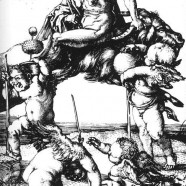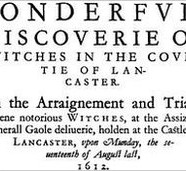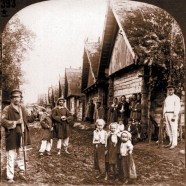Witch Persecutions, Women, and Social Change: Germany 1560-1660
PART FOUR, Last in a seriesRead Part One, Part Two, and Part Three.The late 16th and early 17th century was an era of radical social, economic, and religious change. As women had much to lose, they had reason to rebel. And they remained a threat to the new social order. Art of this period often depicted women as insubordinate and wanton: beating their husbands, swilling wine, and lustfully dragging men to bed (Merchant 133). Reformer John Knox was of the opinion that if a woman was presumptuous enough to rise above a man, she must be “repressed and bridled” (Ibid 145). This was...
Read MoreThe Pendle Witches and Their Magic, Part 1
In 1612, in one of the most meticulously documented witch trials in English history, seven women and two men from Pendle Forest in Lancashire, Northern England were executed. In court clerk Thomas Potts’s account of the proceedings, The Wonderfull Discoverie of Witches in the Countie of Lancaster, published in 1613, he pays particular attention to the one alleged witch who escaped justice by dying in prison before she could come to trial. She was Elizabeth Southerns, more commonly known by her nickname, Old Demdike. According to Potts, she was the ringleader, the one who initiated all the...
Read MoreBeyond the Marquee: Toward a Common History
This article of mine was originally published in the February 2011 issue of Historical Novels Review.Come and visit our panel “Are Marquee Names Really Necessary” with star authors Margaret George, C.W. Gortner, Susanne Dunlap, and Vanitha Sankaran at the 2011 Historical Novel Society North American Conference in San Diego, on Saturday, June 18.Recorded history is wrong. It’s wrong because the voiceless have no voice in it. These are the words of the late, great Mary Lee Settle, author of the classic Beulah Land Quintet, published in the 1950’s when both academic history and most...
Read More





